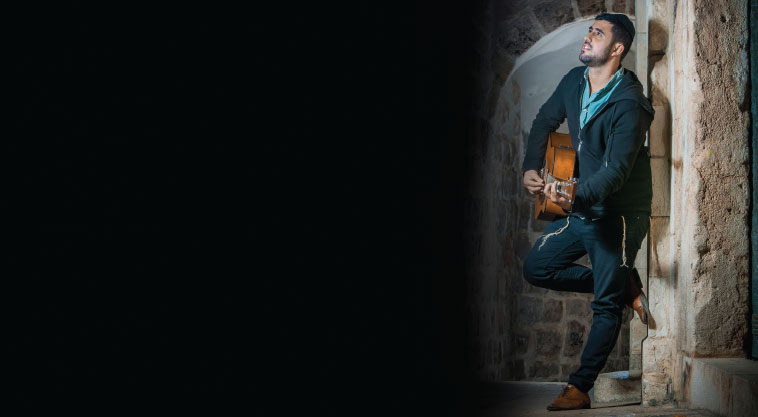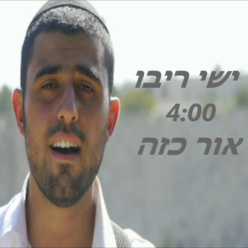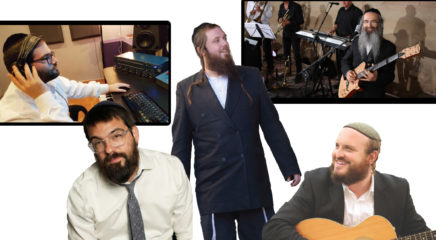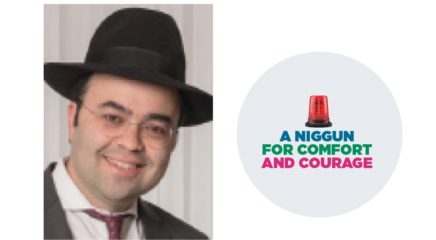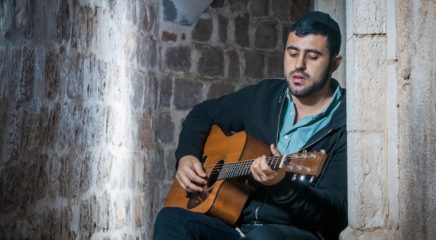At age 18, French-born Ishay Ribo learned to play guitar and just knew he wanted to be a professional singer and songwriter. “But,” he admits, “I had no idea how this would happen. I had no connections, not enough musical knowledge, and had never even studied music — I wasn’t part of the industry at all.”
Still, he’d been composing simple tunes and lyrics since age 12. “I was a bit of a wild kid and writing songs would calm me down,” says the almost 30-year-old father of two, who lives in Jerusalem today, with four successful Israeli spiritual pop-style albums to his credit.
It was a winding path, but Ishay says he felt bountiful siyata d’Shmaya all along the way.
Even after the release of his debut album and single Tocho Ratzuf Ahavah in 2012, the future remained uncertain. The song wasn’t an instant hit — it would take time before he was “discovered.” Ishay then released another single off the album, but that was even less successful and his money was running out. “I didn’t know how to go any further. I was a religious married man, starting a family, with all the related expenses, and I needed to start making something back,” he recalls.
While Ishay was weighing the wisdom and feasibility of releasing another song, he received a call from secular Israeli singer and songwriter Idan Reichel. “Idan had heard ‘Tocho Ratzuf Ahava’ and was inviting me to sing on his album, The Idan Reichel Project. This was exactly the opportunity I needed. But I had made a kabbalah to sing only songs connected to emunah, bitachon, and the Borei Olam.”
Ribo told Reichel about his condition, and added, “Don’t even bother sending me a song if it’s not suitable. I don’t want to be tempted.” Reichel wasn’t fazed. “Good that you’re telling me. I have a spiritual song, perfect for you. I’m sending it.” The song, entitled “Or Kazeh,” gave Ishay strength to continue along his career path. “Not because it succeeded — but because the entire incident gave me hope. Here I was at my low point, and suddenly I’d been given a stage.”
Today, Ishay Ribo has managed to break down sectarian barriers by mixing spiritual influences with inspirational melodies. His concerts attract capacity crowds from the entire spectrum of Israeli society, he has won prestigious music awards, and he still only wants to sing about the Borei Olam. “Music is a great connector,” he reflects. “Not-yet-religious people come and feel their souls stirred. People have told me, ‘I’m not religious, but I won’t listen to your songs on Shabbat.’” (Originally featured in Mishpacha, Issue 740)

